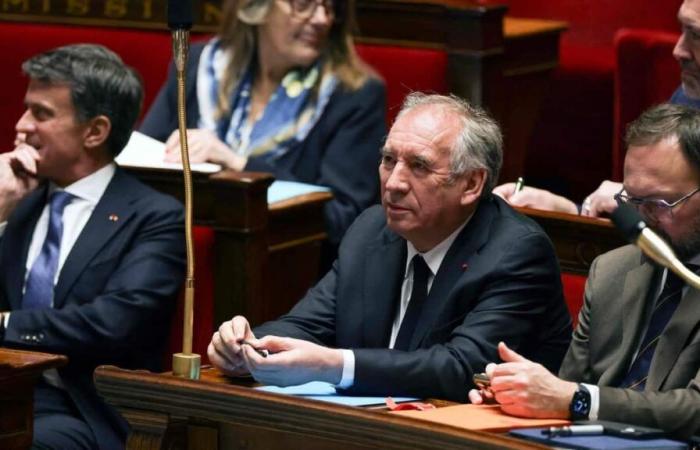The radical left failed on Thursday to pass a motion of censure against the government of the new French Prime Minister François Bayrou, in a context of political instability unprecedented in France for decades.
• Also read: France: the Bayrou government faced with a first motion of censure
The text was tabled by the radical left party La France insoumise (LFI) against the minority government formed by the centrist, who a month ago became the fourth prime minister in France in a year.
The motion was voted on Thursday evening by 131 deputies, LFI, communists and ecologists, but not by the majority of socialists. A result far from the 288 votes necessary to censure the government.
While France still has no budget for this year, deputies examined on Thursday the 150th motion of censure of the Fifth Republic, a regime in place since 1958.
In the PS, after long discussions, the decision not to vote for censure was taken on Thursday by the party’s national office following heated debates, according to one of its participants.
The Socialist Party does not rule out voting for the next censorship during the budget, and will reiterate its “requirements” in this area as part of its negotiations with the government.
The Socialist Party remains “in opposition” but is “open to compromise,” said PS boss Olivier Faure.
“Internal war”
The Prime Minister had already announced the resumption of the highly contested pension reform and the abandonment of 4,000 job cuts in National Education. Thursday, in an attempt to rally the socialists, François Bayrou made final concessions, confirming the abandonment of the project to extend the waiting period – from one to three days – for civil service agents in the event of an arrest illness and the “maintenance” of the proposed tax on high incomes.
François Bayrou accused LFI on Thursday of “choosing internal war” for the country and of wanting “confrontation to be the law”.
“The choice that is before us, in the very serious situation that our country is experiencing”, is “between perpetual internal confrontation and the attempt to seek a path of dialogue, of reflection, of compromise, of negotiation so that things are moving forward,” argued the head of government, just before examining the motion of censure.
-The national coordinator of LFI Manuel Bompard, for his part, predicted the fall of the “unhappy government” of François Bayrou, as well as that of the “monarch” Emmanuel Macron, in his motion of censure speech to the Assembly.
In a dig at the socialists, he took the opportunity to castigate the “irresponsibility” of those who want to “wait a few more days or a few weeks” to make a decision.
Mr. Bayrou therefore avoided suffering the same fate as his conservative predecessor Michel Barnier, whose government was overthrown after three months by an alliance of left and far-right deputies, without succeeding in having a budget adopted.
The 73-year-old centrist is navigating a fragmented political scene resulting from the anticipated legislative elections, organized after the surprise dissolution of the Assembly by President Emmanuel Macron in June.
Priority: the budget
The hemicycle now finds itself fractured into three blocks: alliance of the left, Macronists and centrists, extreme right. But none has an absolute majority.
But while Mr. Barnier had tried in vain to obtain a “non-censorship” commitment from the far right, François Bayrou bet on the socialists.
He therefore launched intense negotiations with them centered on pension reform, which had caused major demonstrations in 2023, by raising the retirement age from 62 to 64.
The far-right National Rally (RN) party had decided not to join the motion of censure.
An early supporter of Emmanuel Macron, Mr. Bayrou announced that his government was targeting a public deficit of 5.4% of GDP this year, compared to 6.1% expected for 2024.
France posted the worst performance of the Twenty-Seven with the exception of Romania, far from the 3% ceiling authorized by EU rules.






